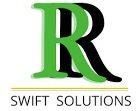What is Object-Oriented Programming (OOP)?
In Salesforce, where innovation meets efficiency, OOP principles form the bedrock of application development. But what exactly is OOP? Think of it as a toolkit for developers, where each tool represents a real-world entity with its own set of behaviours and characteristics.
This approach simplifies complex systems by breaking them down into manageable components, allowing developers to create scalable and customizable solutions tailored to specific business needs.
Importance of OOP in Software Development
Object-Oriented Programming (OOP) stands as a cornerstone, offering a structured approach to building robust and scalable applications. Its significance lies not only in its ability to streamline code organization but also in its profound impact on the development process itself. Here’s why OOP holds such paramount importance:
- Enhances code organization and maintainability: By breaking down complex systems into modular components, OOP promotes code organization and makes maintenance easier.
- Promotes code reusability: Through features like inheritance and encapsulation, OOP facilitates the creation of reusable components, reducing redundancy and accelerating development.
- Facilitates easier debugging and troubleshooting: OOP’s modular structure simplifies the debugging process by isolating errors to specific components, making it easier to identify and fix issues.
- Enables faster development: With OOP’s emphasis on code reusability and modularity, developers can leverage existing components to accelerate the development process, resulting in faster time-to-market.
- Supports scalability and flexibility: OOP’s modular architecture allows applications to scale effortlessly to accommodate growing demands while remaining flexible enough to adapt to changing requirements.
Object-Oriented Programming in Salesforce
(OOP) serves as the cornerstone of innovation, empowering developers to build scalable and customizable applications. With Salesforce’s proprietary language, Apex, developers have access to a rich set of tools and frameworks for implementing OOP concepts seamlessly within the Salesforce ecosystem. From defining custom objects to implementing complex business logic, OOP principles permeate every aspect of Salesforce development, enabling developers to create tailored solutions that address specific business needs.
Salesforce’s robust platform architecture, coupled with OOP principles, provides developers with the flexibility and scalability needed to build applications that can adapt and grow with their organizations. Whether it’s creating custom triggers, implementing workflows, or integrating with external systems, OOP concepts form the foundation of Salesforce development, empowering developers to unleash the full potential of the Salesforce platform.
Basic Concepts of OOP
Object-Oriented Programming (OOP) is a fundamental paradigm in software development that revolutionizes how we conceptualize and build applications. At the core of OOP lie several key concepts that shape the way we design and structure our code.
In this section, we delve into the basic concepts of OOP, starting with the foundation of classes and objects. We’ll explore how encapsulation, inheritance, polymorphism, attributes, methods, and abstraction work together to create robust, modular, and maintainable software systems.
Understanding these concepts is essential for any programmer looking to harness the power of OOP in their projects and elevate their coding skills to the next level.
Classes and Objects:
- Classes serve as blueprints for creating objects and defining their structure and behaviour.
- Objects, on the other hand, are instances of classes, representing real-world entities with specific attributes and actions.
Encapsulation:
- Encapsulation involves bundling data and methods within a class, protecting them from external interference.
- This promotes data integrity and code maintainability, as changes to the internal implementation do not affect other parts of the program.
Inheritance:
- Inheritance allows classes to inherit properties and behaviours from other classes, facilitating code reuse and hierarchy.
- This promotes modularity and extensibility, as developers can create new classes based on existing ones without duplicating code.
Polymorphism:
- Polymorphism enables objects to exhibit different behaviours based on their context or data type.
- This enhances code flexibility and readability, as the same method can be used with different objects, providing a unified interface.
Attributes and Methods:
- Attributes represent the state of an object, defining its properties and characteristics.
- Methods, on the other hand, define the actions or behaviours that an object can perform.
Abstraction:
- Abstraction simplifies complex systems by hiding implementation details and exposing only essential functionalities.
- This allows developers to focus on what an object does rather than how it does it, promoting code clarity and maintainability.
Advanced OOPs Concepts in Salesforce
As developers delve deeper into Salesforce development, they encounter advanced Object-Oriented Programming (OOP) concepts that further enhance their ability to create robust and efficient applications. Let’s explore two such concepts:
Interfaces:
- Define a set of methods that classes must implement in Salesforce.
- Establish a contract between different classes, ensuring consistency and interoperability.
- Allow developers to enforce specific behaviours across multiple classes without tight coupling.
- Promote code maintainability by providing a flexible way to swap out implementations easily.
- Offer flexibility, enabling developers to adapt and modify code without affecting other parts of the codebase.
Generics:
- Enable the creation of reusable components in Salesforce that work with different data types.
- Particularly useful for writing generic algorithms and adaptable data structures.
- Parameterize classes and methods with generic types to create versatile and efficient code.
- Code developed with generics is not tied to specific data types, promoting adaptability.
- Enhance code reusability and reduce redundancy, contributing to cleaner and more maintainable codebases.
Benefits of OOP in Salesforce
Object-Oriented Programming (OOP) is not just a coding technique; it’s a philosophy that underpins the entire Salesforce development ecosystem. Here are some of the key benefits of OOP in Salesforce:
- Accelerates development cycles and promotes code maintainability.
- Facilitates seamless integration with existing systems and third-party applications.
- Enhances scalability and adaptability to evolving business requirements.
- Fosters collaboration among development teams through modular and reusable code.
- Drives innovation and empowers developers to build sophisticated applications.
Best Practices for OOPs in Salesforce
When it comes to implementing Object-Oriented Programming (OOP) concepts in Salesforce, adhering to best practices is crucial for ensuring the scalability, maintainability, and performance of your applications. Here are some recommended best practices:
- Adhere to naming conventions and maintain a consistent coding style.
- Utilize design patterns to solve common problems and improve code structure.
- Write comprehensive unit tests to ensure the reliability and robustness of your code.
- Document your code effectively to enhance its readability and maintainability.
- Embrace version control and collaboration tools to streamline development workflows.
Examples of OOP Concepts Implemented in Salesforce
In Salesforce development, OOP concepts are applied in various scenarios to create scalable and efficient applications. For example, developers can use inheritance to create custom object hierarchies, encapsulation to hide complex logic within classes, and polymorphism to enable objects to exhibit different behaviours based on their context.
Additionally, interfaces are used to define common behaviour across multiple classes, while generics allow for the creation of reusable components that can work with different data types. These examples demonstrate how OOP concepts empower developers to build robust and customizable solutions on the Salesforce platform.
FAQs about Object-Oriented Programming (OOP) in the Salesforce
Navigating the terrain of Object-Oriented Programming (OOP) in the Salesforce universe may bring about a multitude of questions. Let’s unravel some common queries and shed light on the intricacies of OOP within the Salesforce development landscape.
If you’ve ever wondered about the role of OOP in Salesforce, its compatibility with Apex—the programming language of the platform—or how it contributes to code reusability, this section aims to address your concerns.
Let’s dive into the frequently asked questions to demystify the world of OOP in Salesforce.
Q1. Does Salesforce use object-oriented programming?
Salesforce employs object-oriented programming extensively, leveraging its proprietary language, Apex, to build scalable and customizable applications.
Q2. How does Apex, the programming language in Salesforce, support OOP?
Apex supports OOP through features like classes, inheritance, polymorphism, and encapsulation, enabling developers to write modular and maintainable code.
Q3. How does OOP contribute to code reusability in Salesforce?
By promoting encapsulation, inheritance, and polymorphism, OOP facilitates the creation of reusable components and libraries, reducing development time and effort.
Q4. Where can I find additional resources to learn more about OOP in Salesforce?
There are numerous online resources, such as official Salesforce documentation, developer forums, and online training courses, that offer in-depth tutorials and guides on OOP concepts in Salesforce development.
Conclusion
Mastering Object-Oriented Programming concepts is essential for Salesforce developers looking to build scalable, maintainable, and innovative applications. By understanding and applying OOP principles effectively, developers can unlock the full potential of the Salesforce platform and deliver unparalleled value to their organizations and clients.
Boost Your Expertise with RR Swift Solutions Online Training and Job Support!
Elevate your skills and advance your career in Salesforce development with RR Swift Solutions’ comprehensive online training and job support services. Our industry-leading instructors and hands-on learning approach will equip you with the knowledge and expertise needed to excel in the competitive IT landscape. Take your career to new heights with RR Swift Solutions today!




